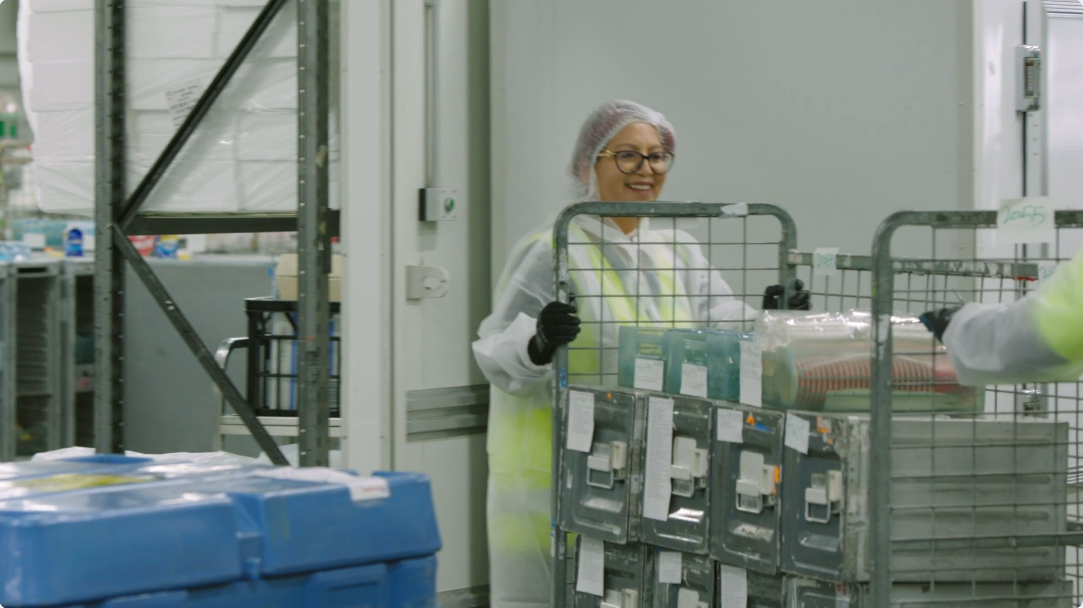Every business needs an effective onboarding process. 32% of global executives say they experienced a poor onboarding process, and 49% of millennial's want a better onboarding experience.
A great onboarding experience can prevent staff turnover and help with employee retention. It is possible to build great relationships with new staff members so that they begin a long journey with you and your company; not only so they stay for the long run but also so they can find work satisfaction and remain productive.
So, how do companies form a great onboarding process that can help build trust and form great connections? Here are some things you should keep in mind when structuring your onboarding.
Communicate frequently – from before their start date to all the way until they are settled and established
Clear communication is highly valued and can avoid any misinformation leading to misunderstandings and unhappy employees. One of the most important things when welcoming people to your company is to make sure they are never feeling completely lost or confused about where they stand. Communication should start from as soon as you offer them the job up until their probation period is over. By then, they will be a well established part of the company and should be well integrated with their team. Communication involves letting them know of plans, activities, information, business challenges and success as well as asking for feedback and making sure all their questions are answered.
Communicate transparently
In addition to frequent communication, be open and honest. Try not to be vague or mysterious about any part of the business – this can cause mistrust. It’s important that a new employee feels like they are going to be contributing to the bigger picture, so the more they know about the business, the better they can work.
Avoid ‘us and them’ mentality and phrases when speaking about management and employees
When in conversation, don’t place blame or speak negatively about management or other employees in any way. As all businesses have their quirks, let the employee make their own opinions. It’s vital that a new starter has the objectivity to perform and learn their role adequately without involving politics and/or drama. They should also be brought into a cohesive environment – otherwise their motivation may instantly drop!
Lead with integrity and be accountable – do what you say you will do
Many employees with a bad manager or team leader will lack enthusiasm and job satisfaction. So, it’s extremely important that new employees see accountability being demonstrated when they first start. It may be a good idea to set accountability metrics for both them and you and ensure certain expectations are being met. This is a huge building block for trust when employees see that your words are backed up by actions.
Trusting can encourage trust in return - so don’t try to micromanage
Sometimes it is hard to trust new employees. They may still be learning, they may interview well and not perform, you may have had terrible experiences in the past with new starters... there are all kinds of reasons to have fear about your hiring decision. But, try to push those fears aside and lead with trust. Give them enough information to be autonomous and open to asking questions when they need you. Do not micromanage! No one likes being micromanaged and they will quickly feel uncomfortable in the workplace if you do so.
Keep it real and human
We’re not robots, so don’t act like one. Never forget human elements. It’s exciting starting a new job, but also nerve-racking for some, so keep that in mind and make them feel comfortable and at ease. It’s important to get to know your employees not just as workers but as people. This helps build a relatable relationship. If the employee is having performance issues down the road, it will be easier to approach them and ask them if everything is okay. They will feel more comfortable connecting about personal issues if you have previously discussed things that don’t count as ‘work’ such as parenting, being a carer or having an external hobby/commitment. It’s imperative to value a person’s humanity above their work value, especially during pandemic times where mental health is so vastly effected... people need comfort and security more than feeling pressure to perform. If they feel secure, they will continue to perform at a higher level. Not only that, they will also respect your business by feeling valued and therefore maintain a healthier mindset towards work.
During this time (COVID-19) where many people are working from home or socially distancing the best they can at work – all of these things are still possible. Think about video chat, email, traditional phone calls, chat functions, and all other avenues of communication that can help you achieve these onboarding must-haves.
If you have any queries about successful onboarding, don’t hesitate to ask and we will get back to you as soon as we can.













